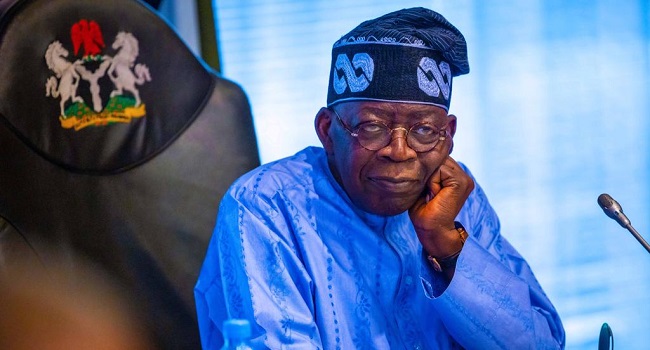President Tinubu’s 73rd Birthday: A Time for Reflection and Renewed Commitment to Nigeria’s Progress
President Bola Ahmed Tinubu recently celebrated his 73rd birthday, marking another milestone in a life dedicated to public service. The occasion provided an opportunity to reflect on his journey, his vision for Nigeria, and the challenges that lie ahead. The International Human Rights Commission (IHRC) in Nigeria joined the nation in felicitating the President, acknowledging his unwavering commitment to repositioning the country and steering it towards a path of prosperity. However, amidst the celebratory atmosphere, the IHRC also highlighted pressing concerns regarding Nigeria’s security situation, urging the President to prioritize addressing these issues to ensure the nation’s stability and progress.
The IHRC’s congratulatory message, conveyed by Dr. Duru Hezekiah, Head of Diplomatic Mission in Nigeria, commended President Tinubu’s dedication to democratic ideals, economic recovery, and national cohesion. The commission expressed confidence in the President’s ability to navigate the complexities of governance and lead Nigeria towards a brighter future. The statement emphasized the high expectations Nigerians hold for their leader, particularly in tackling the security challenges that threaten the nation’s peace and development. The IHRC called on all citizens to support the President through prayers and unity, recognizing that collective effort is essential for overcoming the obstacles facing the country.
While acknowledging the President’s efforts, the IHRC raised serious concerns about the escalating security challenges plaguing various parts of Nigeria. Specifically, the commission cited the mob attack on northern travelers in Edo State and the execution of three Nigerian soldiers by the Islamic State in Iraq and Syria (ISIS) as alarming examples of the pervasive insecurity. These incidents underscore the urgent need for a comprehensive and robust security strategy to protect lives and property across the nation. The IHRC urged the President to prioritize addressing these security concerns as a matter of national urgency.
The mob attack on northern travelers in Edo State highlights the fragility of inter-communal relations and the potential for violence to erupt along ethnic and religious lines. The incident underscores the need for proactive measures to promote tolerance, understanding, and peaceful coexistence among diverse communities. Addressing the root causes of such conflicts, including poverty, unemployment, and inequality, is crucial for fostering lasting peace and stability. Furthermore, strengthening law enforcement agencies and ensuring accountability for perpetrators of violence are essential steps in deterring future acts of aggression.
The execution of Nigerian soldiers by ISIS further emphasizes the growing threat of terrorism and extremism in the country. This incident highlights the need for enhanced intelligence gathering, counter-terrorism operations, and regional cooperation to combat the spread of extremist ideologies and protect national security. Addressing the underlying factors that contribute to radicalization, such as poverty, lack of education, and marginalization, is also crucial for preventing the recruitment and indoctrination of vulnerable individuals.
The IHRC’s call for prayers and unity reflects the belief that collective action and divine guidance are essential for overcoming the challenges facing Nigeria. The commission urged citizens to put aside their differences and work together towards a common goal of building a peaceful, prosperous, and united nation. The IHRC emphasized that the task of nation-building requires the active participation of all citizens, regardless of their ethnicity, religion, or political affiliation. By working together in a spirit of unity and cooperation, Nigerians can create a better future for themselves and generations to come.
In conclusion, President Tinubu’s 73rd birthday serves as a reminder of the immense responsibilities he bears as the leader of Nigeria. While the nation celebrates his milestone, the IHRC’s concerns about security challenges underscore the urgent need for decisive action. The President’s commitment to democratic gains, economic recovery, and national cohesion must be accompanied by concrete steps to address insecurity, promote inter-communal harmony, and combat terrorism. The IHRC’s call for prayers and unity reflects the importance of collective action and divine guidance in navigating these challenges. Ultimately, it is through the concerted efforts of the government, security agencies, and citizens that Nigeria can achieve lasting peace, stability, and prosperity.














